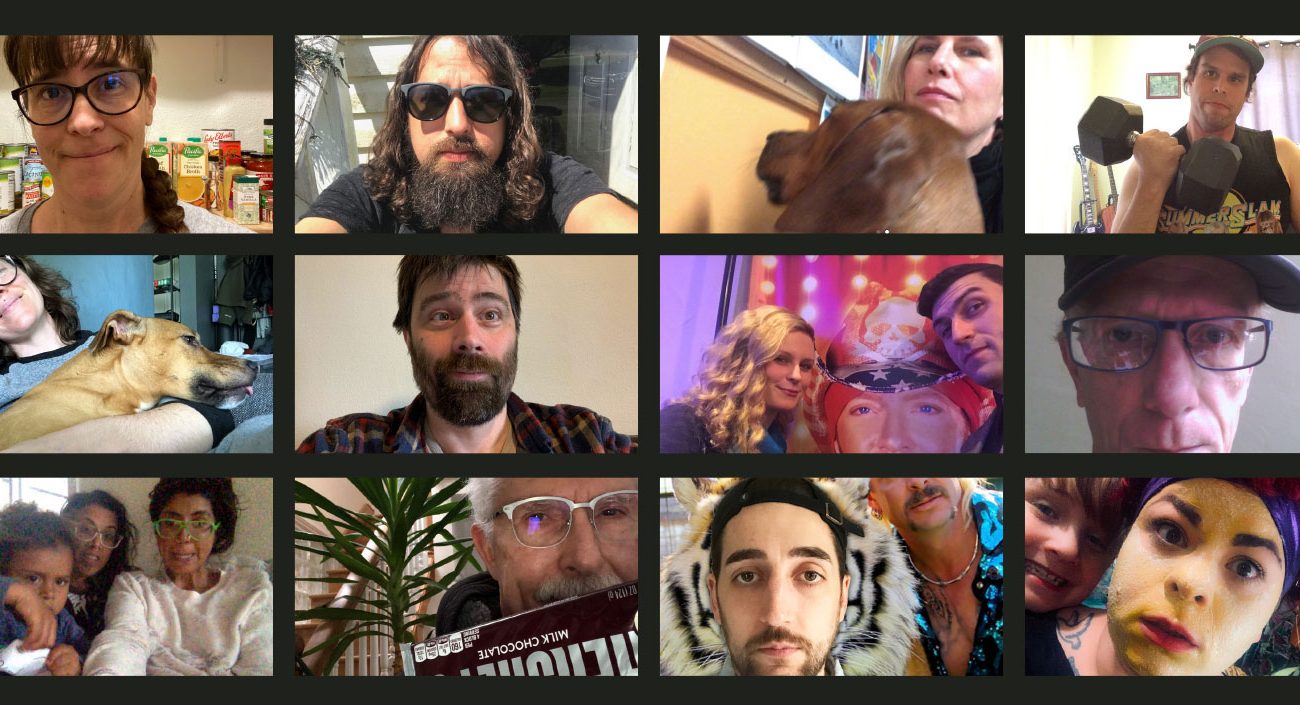The digital world overtook daily life faster than we could ever imagine. Choppy video feed, an awkward amount of silent smiling and sometimes strange lifestyle-revealing backgrounds sprinkled with countless questions of “are you on?” is the new normal for those lucky enough to be working in the era of Gov. Kate Brown’s “stay home, stay healthy” order — or for those who are trying to have a social life during the lockdown.
Living in the digital world doesn’t have to be a terrible change. Communicating in apps like Zoom, Facebook or Slack does allow us humans to be the social creatures we are and communicate with one another after gatherings were prohibited to flatten the COVID-19 curve. And just reaching out to the “digital natives” can offer a huge help for adjusting to working remotely.
Mark Davis, general manager of EugeneTech, says there are digital natives and digital refugees. Digital natives have grown up in tech and some have even been working remotely way before the shelter-in-place order. Digital refugees, on the other hand, are finding themselves in a new world.
“As digital natives, it’s our opportunity to help them navigate the digital world,” he says.
Davis says he’s worked remotely for a long time. A good pair of headphones can go a long way. In addition to tackling the problem of a distant microphone in a computer, better quality headphones allow him to hear more inflection in voices and visualize smiles — the stuff you’d notice when talking in-person.
For professionals used to socializing, working remotely can be daunting. Besides the ongoing distractions of things like the nth replay of The Office in the background or out-of-school kids, having a co-worker just drop by is gone.
But he says the digital break room could be on a random channel on the platform Slack, where co-workers can share things like cat videos.
The length of Oregon’s stay-at-home order could be extended, meaning Eugene’s civic realm could find itself in the digital world, too. Davis says Open Eugene, a local chapter of the nationwide group Code for America Brigade, is working to implement a virtual town square through the open-source video conference app Jitsi, which would stream events hosted by Eugene Chamber of Commerce and maybe even City Council meetings.
With the current greater emphasis on the digital world, Davis says now is the time for digital natives to not just welcome the refugees but also not make them feel dumb because “kind is the new cool.”
Davis says a good starting point for those who see the online world as uncharted waters is through a smartphone. If someone has an iPhone, for example, FaceTime is an easier way to communicate than through a desktop computer where there are more devices to deal with — like a webcam, speakers and microphone.
If you’re still not ready for the online world, online conference call apps allow you to phone it in — or if you have a poor rural internet connection. And one of those apps that seem to be really in season is Zoom, Davis says. It’s been ubiquitous in the business community, he adds, so it’s been the go-to in this period.
The company’s Wall Street performance (NASDAQ: ZM) shows investors agree we’re in the age of Zoom. Zoom’s stock hit its historic highs around Feb. 28. Since then, it has peaked at $161.05 on March 30. That’s a big climb for a business that was around $60 a share in the fourth quarter of 2019, especially in a market that has had more downs than ups recently.
A spokesperson for Zoom won’t share any numbers around users, usage, signups or total number of customers in the area. However, he points to the company’s fourth-quarter earnings release: about 81,900 customers with more than 10 employees, up 61 percent from 2018’s fourth quarter.
As Oregonians deal with the stay-at-home orders, apps like Zoom are helpful for people who are self-isolating, because loneliness can have a profound impact on someone’s mental and physical health, says Elliot Berkman, associate professor in the department of psychology at the University of Oregon. That can take a toll on someone’s immune system, too, a danger when we’re all stuck at home to contain the spread of a virus.
Sure, humans are optimized for person-to-person socialization, he says. And humans have a layer to our brain dedicated to tracking the social world and what people think and expect of us.
“At the same time, it’s not like digital communication is nothing,” he says. “There’s quite a bit of how the social world operates that doesn’t have to be in-person. Merely thinking someone else thinks well or ill of you can change your psychology.”
Digital communication does bring about a sense of social integration, which is something we perceive, he says. Even before the COVID-19 lockdown, you could still be isolated but perceive yourself as socially integrated and vice versa.
He adds that apps like Zoom have a fighting chance to let people think they’re socially integrated, just like online groups playing the massive multiplayer online role playing game World of Warcraft, where players can chat with guild members among other things.
But you don’t necessarily need to look to the digital world if you’re not totally comfortable with the internet. Look to phone conversations or neighbors while maintaining social distance measures because in the end, it’s not just a conversation people seek, he says.
“It’s the broader sense of community,” he says. “If that community is there for you, that it’s a source of support for you, that’s at the heart of what we need.”
